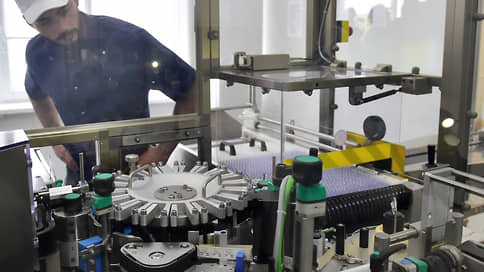Equipment leasing may become one of the growth leaders in the leasing market
[ad_1]

Equipment leasing has become one of the most marginal areas in the leasing market. There is no fierce competition in the segment, and lessees show a low level of defaults. However, it is dominated by medium-sized companies, and the largest players in the industry are looking at equipment leasing with caution, despite the fact that it is growing at a double-digit pace. Of the main problems, industry participants note the lack of a liquid secondary market, developed expertise, and difficulties with logistics.
One of the leaders in the growth of the leasing market may be the segment of production equipment. In Interleasing (equipment accounts for 25% of the portfolio), in the first half of 2023, the volume of new business in this segment amounted to RUB 6.11 billion, twice the figure of the previous year. Arenza’s portfolio consists of 97% of equipment, and in half a year it showed an increase of 87% compared to the previous year.
In general, according to the forecast of Expert RA, published at the end of March, in 2023 the leasing market expects growth in new business within 10% (see Kommersant dated March 20). In the first quarter of 2023, the volume of new business, expressed in the number of leased items, increased by 27%, to 131 thousand units. The largest increase in new business by types of leased items was shown by catering equipment (158%), climatic and mechanical equipment (121%), special equipment (49%) and industrial equipment (31%; see Kommersant of May 22).
As noted by the participants in this segment of the market, in general, it has a higher margin than leasing cars and trucks, special equipment. “This is connected both with a smaller number of competitors in the segment and with a low default rate of lessees,” notes Sergey Zharkov, commercial director of Interleasing.
The default rate in the company’s segment is estimated at less than 0.5%. “Half of the customers in the equipment leasing segment are SMEs, but these are companies in the industrial sector. By the time they need to install or upgrade equipment, they already have a site with production history and operational results,” explains Mr. Zharkov. In addition, advance payments for equipment leasing reach 25%. In the retail car leasing segment, companies talk about zero advance payments (see Kommersant dated August 1).
But despite the attractiveness of the segment, the emergence of new players in the short term should not be expected, market participants agree. “The main stumbling block in transactions with equipment is that, as a rule, leased items are less liquid due to narrow specialization and installation difficulties. In order to reduce losses, lessors structure transactions more carefully, often require additional collateral, and conduct a deep analysis of the client’s financial condition,” explains Ksenia Yakushkina, director of banking ratings at the Expert RA agency.
“The assessment requires the presence of a developed analytical function in the leasing company, which is different from the scoring assessment adopted in the retail business model,” emphasizes Region Leasing CEO (40% of the leasing portfolio is leasing) Rustem Mukhamedov. “Under standard conditions, we can approve equipment with the same speed as it is done in car leasing,” confirms Valentina Polyakova, Deputy General Director for Strategy and Development of Deltalizing. “But only 8% of transactions in 2023 were able to go through an automated accelerated approval and evaluation process” .
At the same time, major participants in the leasing market note that it is difficult to combine the retail approach and the risks that equipment leasing implies for a company. According to Veronika Novikova, Chairman of the Board of Alfa-Leasing, “it is clear how to find, seize, store and sell a car; equipment … must be properly disconnected and dismantled, properly transported and stored ”(see Kommersant of May 29). And this requires additional resources from the company, she notes.
Obviously, work in the equipment leasing segment cannot be a continuous business, where economies of scale arise, emphasizes Valentina Polyakova. As a top manager of one of the large companies notes, equipment leasing is interesting not in itself, but as an addition to a large contract. For example, if a lessee leases 1,000 cars, he needs equipment to repair the fleet. But in itself a piece of equipment for a car wash or a car repair shop, the interlocutor of Kommersant specified, is not interesting.
[ad_2]
Source link





